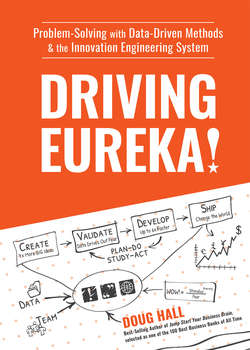Читать книгу Driving Eureka! - Doug Hall - Страница 27
На сайте Литреса книга снята с продажи.
How Could They Know?
ОглавлениеAs you embark on this journey, you will quickly see the world in a new way. Problems will be seen as opportunities to 19. A mindset of “If it’s not broke, don’t fix it” will be replaced with a never-ending passion for discovering ideas, methods, and tools for working smarter.
As your mindset changes, you are likely to find that your new thinking conflicts with others. You will become frustrated that they don’t embrace and celebrate your new courage and confidence to use innovation to work in smarter ways.
A fundamental belief within the Innovation Engineering community is that people are fundamentally good. We believe that the naysayers you interact with are not against change or Innovation Engineering. They just don’t understand it. They can’t imagine that innovation could be a reliable science instead of a random gamble. It was the same with Dr. Deming’s efforts in the 1980s. When asked if executives were doing enough to apply his teaching, his response would be loud and on the verge of belligerent:
Managers don’t know about it. How could they know? How could they know there was anything to learn? How could they? How could they? How could they know there was any other way to manage?
Quite simply, most adults think that ideas are magical and only randomly reveal themselves to so-called special people. How could they know that everyone can add value and make a difference if they are simply taught how to think quicker, faster, and more creatively.
How could they, or you, know? Until recently there were no courses available in system-driven innovation. The good news is that now you can learn how to use system thinking to enable yourself and your organization to innovate faster and with less risk. Not only can you learn it—you can master it.
However, before we get started, I want you to pause and reflect.
